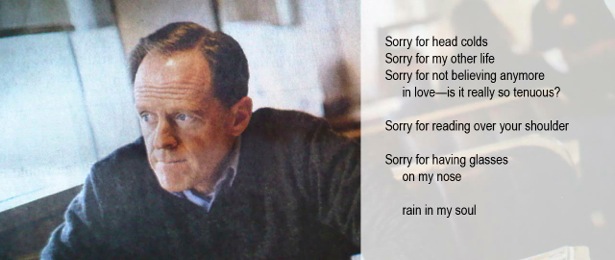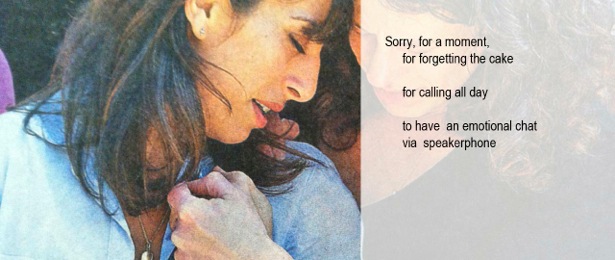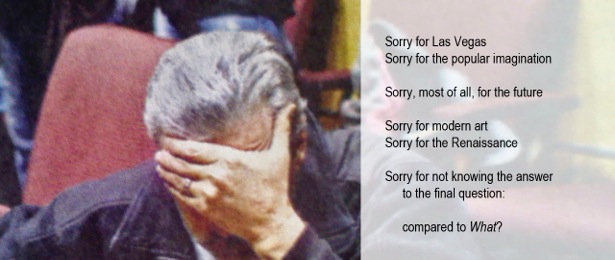Pairing a collection of private apologies written in response to personal traumas with a charged series of photographs capturing intensely human moments, Pattison’s Art in Transit programme launches the year with Sorry—a collection of illustrated poems by Boston-based artist Gary Duehr.
Reaching over three million daily viewers across Pattison’s country-wide network of digital screens, Duehr’s poems will catch audiences in the very places they are most likely to apologize: the subway during a busy commute, the workplace, the mall. And it is exactly in these places that the artist hopes his works will have their greatest effect. “I have strong feelings about the American tendency for a knee-jerk apology,” explains Duehr, “[which is used] almost as frequently as ‘Have a Nice Day’—and also about mea culpas by politicians who seek forgiveness so they can go and sin some more.”
Although the artist’s apologies were originally written as heartfelt confessions, when strung together all sincerity is lost to redundancy, as each mounting apology becomes more extreme than the last. From excusing himself for headcolds to apologizing for modern art, the works are meant to sting audiences to attention, and ultimately to exorcise what the artist sees as a growing cultural trend to apologize without any intention of making a meaningful change. “My apologies go to such extremes and are so many in number,” Duehr notes, “that they almost inoculate passersby against the act of apology.” So next time you bump into one of his works on your way home from the office, chew on his dark humour and take a cue from his dispirited anti-heroes—and stand by your actions, whether good or bad.
Veronica Scarpati (V.S.) approached artist Gary Duehr G.D.) with a few questions.
V.S.: Are the poems the result of personal experience— that is, are they true apologies for events which have taken place in your own life, or have they been drawn from a broader cultural tendency you’ve seen growing over the years?
G.D.: The poems are definitely the result of personal experience – both my emotional life with its mini-traumas like anyone’s, and years of living in the culture and thinking about it critically.
V.S.: How do you select your images, and how do you decide which poem will accompany each work?
G.D.: I have taken the photos to reflect a broad diversity of human experience, while choosing images that are somewhat abstract or open to interpretation: a lone figure, a couple, a scene from a conflict. I worked intuitively in pairing the images and poems, trying to have them relate indirectly or create reverberations—but not to illustrate each other. I like the surprise and contradictions in certain pairs.
V.S.: Is there a particular piece which you think will resonate more strongly with viewers?
G.D.: No, not really. I thought about the 20 images as 20 pages in a book that will have a cumulative effect. But a book where you can’t see everything at once. I do enjoy the ones that have a political tinge or black humor, like “Sorry for being redundant.”
V.S.: Canadians are famously known for their politeness and ready willingness to apologize; do you see these images resonating with Canadian audiences more than with American viewers?
G.D.: I have just learned about their renowned politeness! It does add a whole other level of humor. On my part, this was unintentional. I started the poems about 4 years ago. But I’m a big fan of Canadian art and culture, so for me this is a nice fit.
V.S.: Any last thoughts you’d like our readers to note?
G.D.: It would be nice if everyone could count to three before they apologize and ask themselves what they’ve done. And maybe instead of apologizing in a shallow way, do something to make the situation better!
Veronica Scarpati
The images are courtesy of Art in Transit




